In November last year, Amanda made the huge decision to leave her job in Singapore to relocate to Tokyo and join her church’s missions team there.
The big move was not a snap decision, but the culmination of numerous short-term missions (STM), the first of which took place in her first year of university.
“My cell group leader challenged us to go for a short-term missions (STM) trip together,” recounted the 29-year-old. “At that time, despite my many doubts and concerns, the Lord provided for me, and I went to Vietnam for my first STM trip.
“Since then, God has been drawing me to missions. He opened doors for me to go to eight STM trips to five countries in the past ten years.”

Still, it was only after the Lord spoke to her about Japan specifically in May 2019 when she became more intentional about explore the idea of missions there.
Amanda was praying and worshipping at home when, out of the blue, the words “go to Japan” entered her mind. At first, she wasn’t sure whether it was her own thoughts or words from God.
However, over the next two weeks that followed, the phrase “go to Japan” remained persistent in her mind. And so, she finally acknowledged that it really was God telling her to go to Japan.
Being a very detailed planner, she couldn’t deal with uncertainty, hence she began asking God many questions. How could she go? When was a good time?
From then all the way to April 2020, God shared a series of confirmations with Amanda, directing her to pay more attention to Japan as an area of ministry.
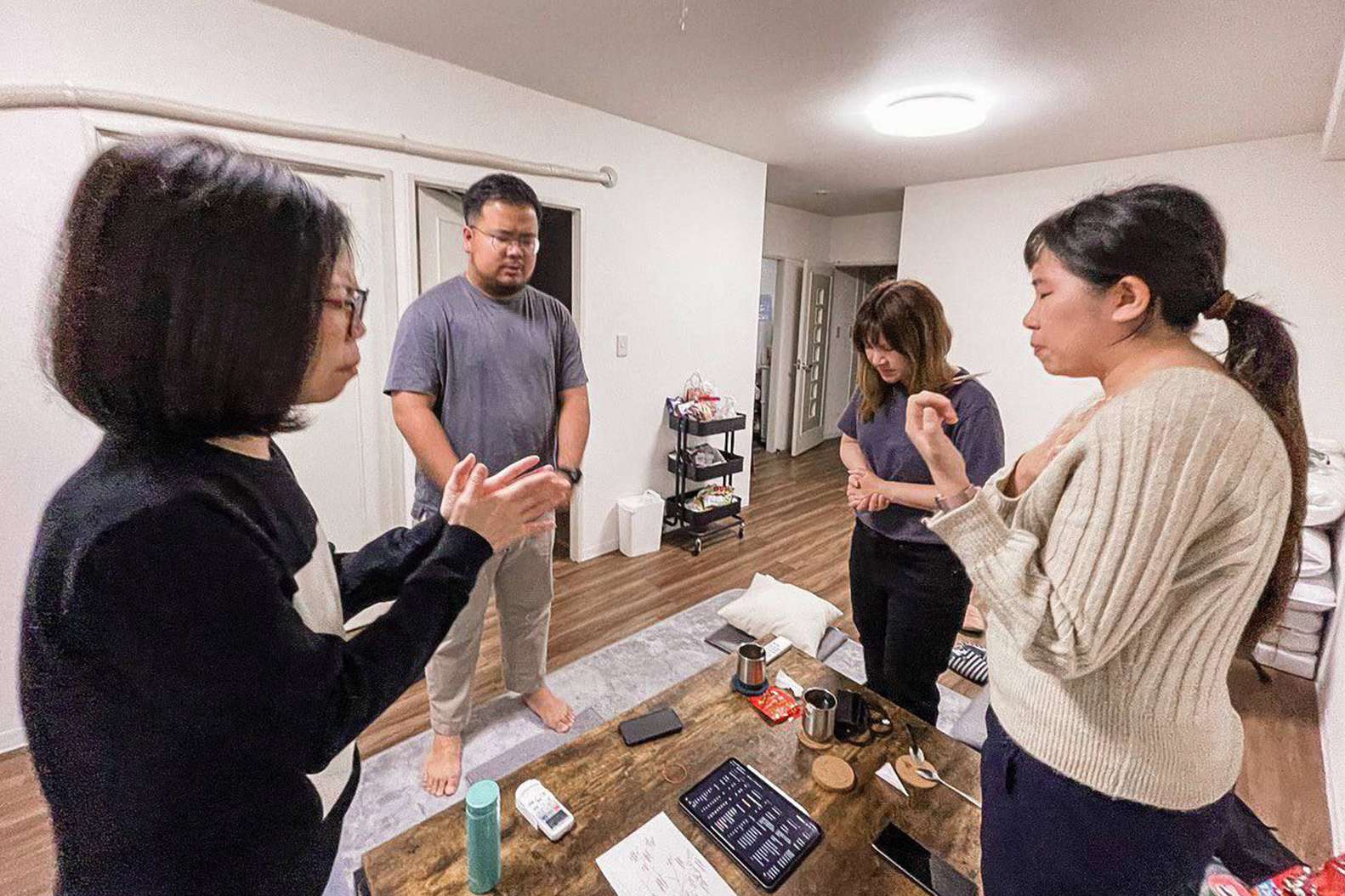
At the start of 2020, a sister in church prophesied for Amanda and shared Psalm 121 with her.
Then a few months later, she reconnected with another sister who was her ex-missions teammate, and learned that she was flying to Japan for missions that year.
Neither of these two sisters-in-Christ knew of Amanda’s thoughts about Japan as she had no plans to fly over yet.
Then, a few months later, a Japanese Christian lady she met through an online Bible Study Fellowship based in Tokyo, prayed for her and shared a few verses to her – one of which was also Psalm 121.
From the first time she received Psalm 121, Amanda had been meditating on the chapter and had asked God to reveal to her His plans and what her portion was in this season.
Amanda had a sense that Psalm 121 was going to be an anchor scripture for her season ahead, so it was very clear that God wanted her to hold onto this word for 2020.
“Being someone who worries a lot, it’s very encouraging to receive such confirmation from the Lord. It’s easy to be anxious, but God has reassured me many times,” reflected Amanda.
“It was only after He spoke to me about Japan that I reflected and realised that God has been opening doors for me to be exposed to missions all this time.”
Intentionality and patience
Prior to a long-term relocation to Japan, Amanda underwent cross-cultural training and learnt about key aspects of Japanese culture such as honne and tatemae.
“Tatemae refers to setting up walls between you and other people, and honne refers to your true thoughts and feelings,” she explained.
“The Japanese distinguish these two things very clearly between their inner circles and everyone else. They’re very guarded, basically. And it’s a systemic thing.”
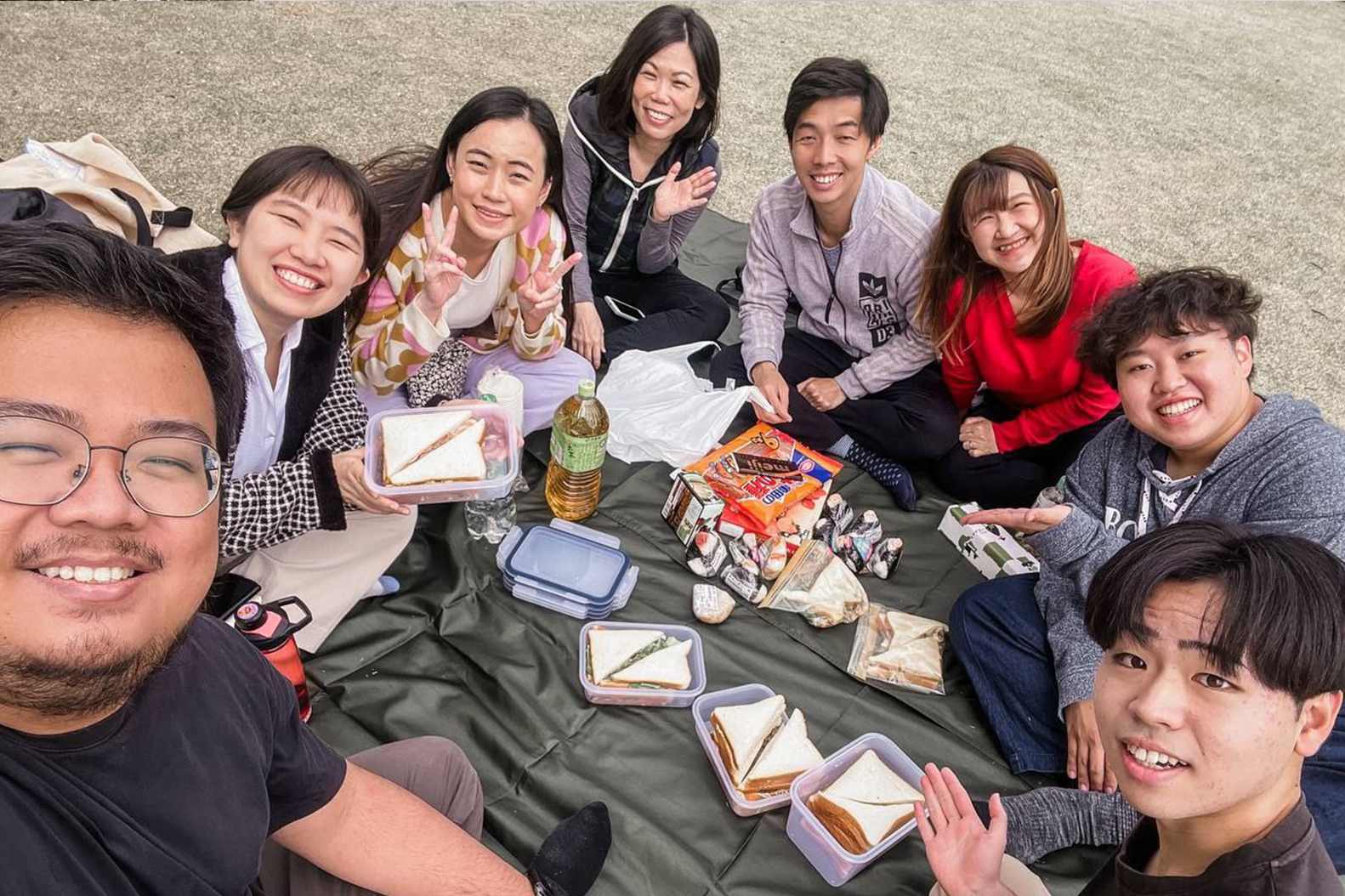
On the ground in Japan, Amanda was able to witness honne and tatemae play out in real life. For instance, when approaching strangers, Amanda observed that many Japanese would be shy and reserved, some even slightly confused.
“It’s not common for people to bless one another there,” Amanda shared. “Their culture is that they tend to keep to themselves.”
Another important thing Amanda learnt is that Japanese do appreciate new friendships or relationships, especially if there is sincerity and genuineness shown.
They just take a significantly longer time to warm up to someone new.
Amanda put this into perspective by sharing about her Japanese friend who accepted Christ.
“We have a Christian Japanese friend who came to know the Lord only a few years ago. A group of missionaries bumped into her at her university campus and made friends with her,” said Amanda.
“Thereafter, they visited her while she was a student almost every week or month. This went on for a year before she accepted Christ.”
Amanda and the team asked this Japanese friend what led her to be open to Jesus. She said that it was because of the “intentionality” by the missionaries to “know her as a friend”.
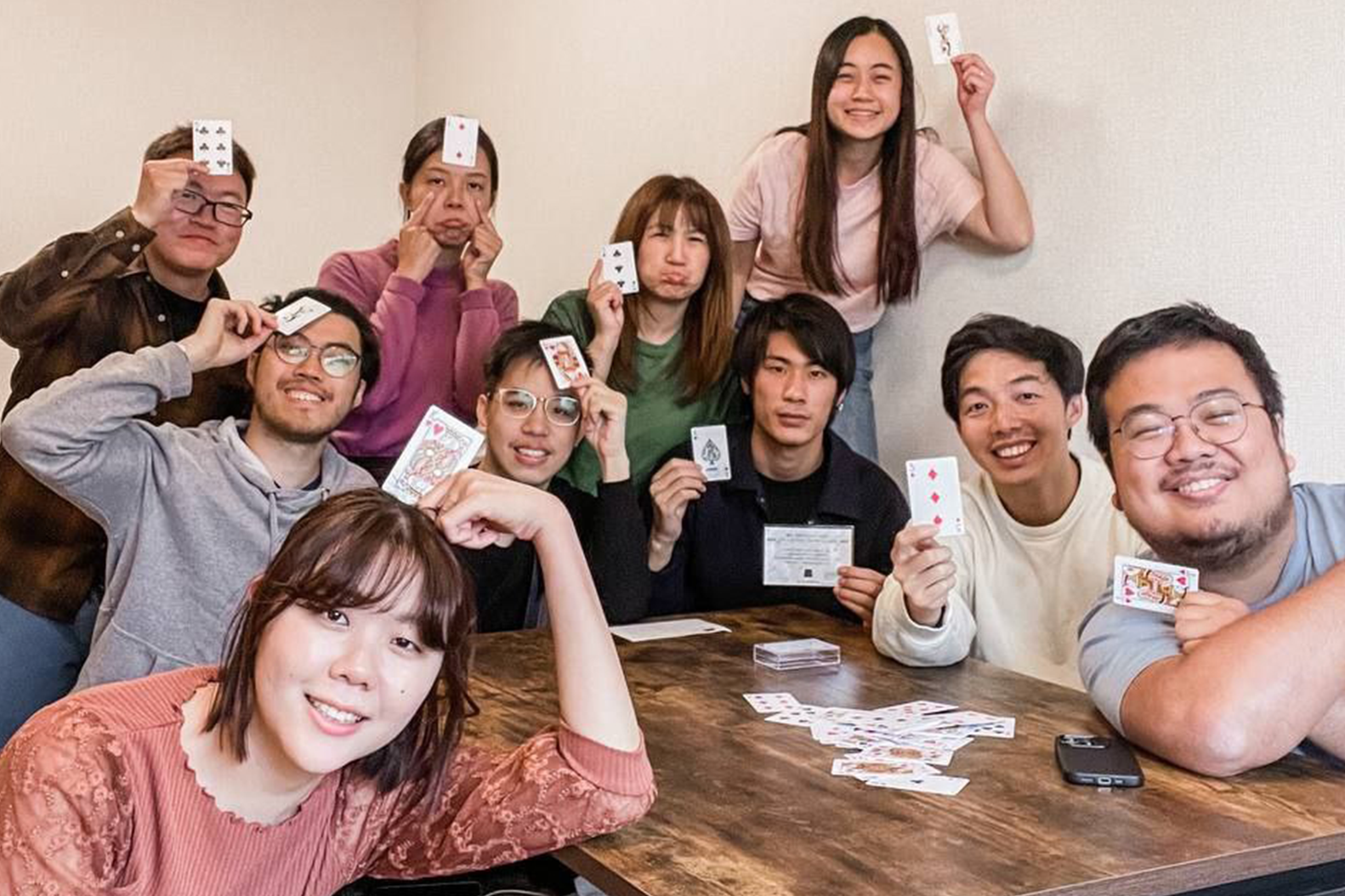
That is why Amanda believes that the focus at the start of reaching Japanese with the Gospel, should be about building authentic friendships.
Noting that trust is very important to the Japanese, Amanda learnt that “rushing” to share the Gospel with them may be counterproductive.
Instead, it is about undertaking the journey of building friendships with sharing Christ as the end goal.
“That definitely requires a lot of patience and prayer,” said Amanda.
Amanda also shared that the culture of hospitality is very strong in Japan.
“Every time we host Japanese friends at our ministry house, it’s part of the unspoken culture for them to bring snacks or desserts to the table,” she observed. “They don’t like inconveniencing others.”
It is a cultural aspect that Amanda has learnt to lean on in ministry: “Hospitality is a very powerful way for us to show them God’s love, because hospitality is also important to God.”
As such, Amanda and her friends practise hospitality by hosting their friends well, making them feel at ease when they meet up and being sensitive to their needs.
Four reflections about missions in Japan
1. The harvest is plentiful, but the workers are few
There are 125 million people in Japan, and only 0.1% of them are Christian.
“Coming from Singapore where we have 19% Christians, Christians in Japan are like rare Pokémon,” Amanda said with a laugh.
“Anytime I come across a Christian Japanese, I’m always super happy, because it’s so hard to even cross paths with fellow Christians, let alone local ones.”
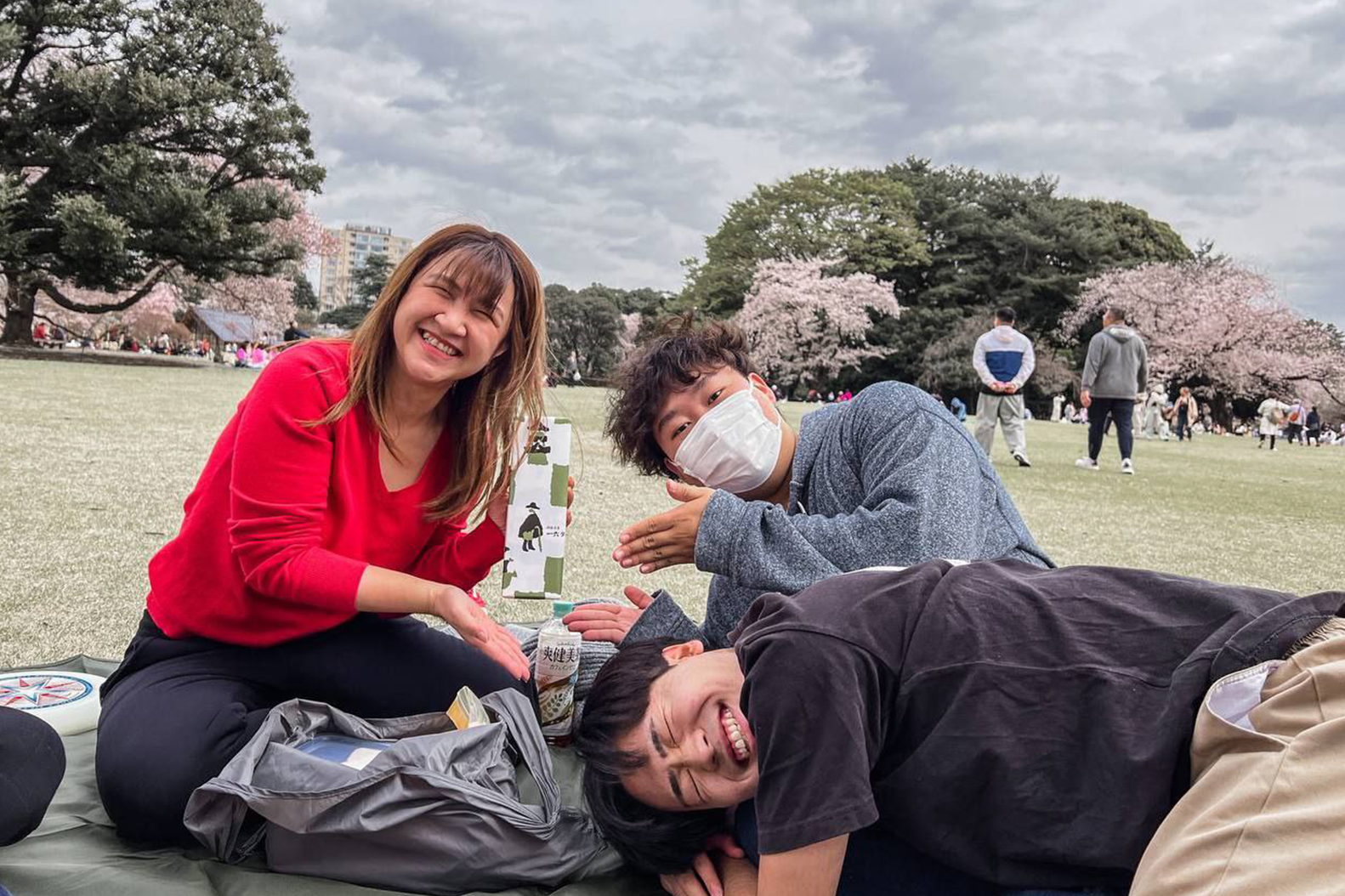
Amanda saw a glimpse of Matthew 9:37 in Japan through the past six months; her team met four Japanese Christians who have never been prayed for by another Christian in their life – and they were around twenty to thirty years old!
That was a stark contrast from Singapore where Christianity is far more prevalent, Amanda reflected.
She realised then, that if there were so few workers in Japan, the likelihood of the Japanese hearing about Jesus is slim – this is something she hopes to help change.
2. It’s not about “spiritual dryness”
Amanda noted that many view Japan as being a spiritually dry land where it is tough to share the Gospel.
However, in the past six months of being in Japan, that hasn’t been the case for Amanda and her small team.
“God led our small team to meet seventy people in six months – which is a lot!” she revealed.
Amanda reckons that the real struggle isn’t so much about spiritual dryness as it is simply needing more workers on the ground.
She hopes to see more Christians in Japan who will facilitate more Christian conversations and intentionally build friendships.
3. Loneliness and the need for community
Amanda befriended a 21-year-old Japanese lady who shared that she had been living alone in Tokyo for the past four years, ever since she moved from her hometown in suburban Japan.
Amanda observed that this common Japanese lifestyle of living alone often heightens loneliness or a sense of isolation.
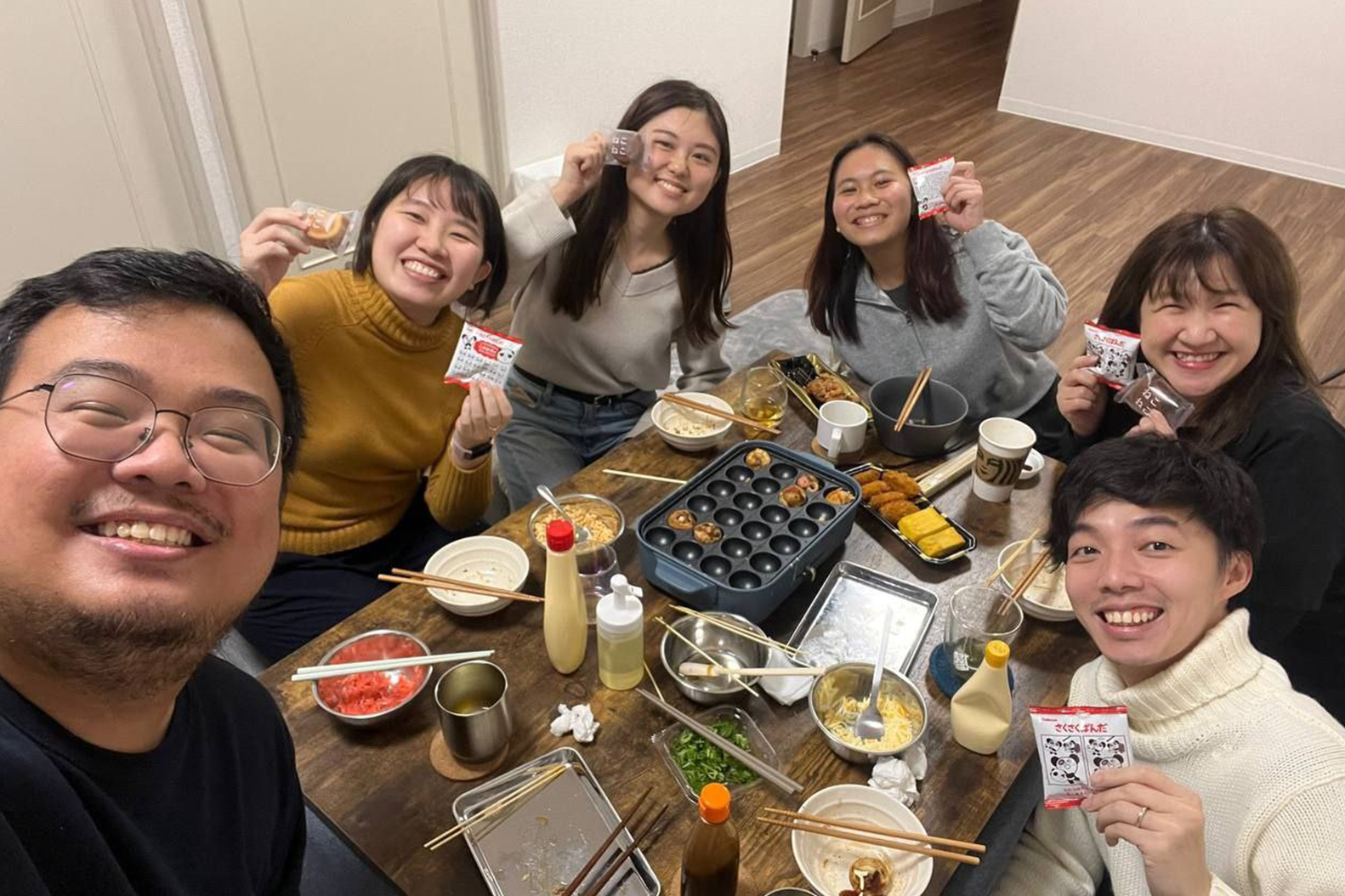
“I think that is very true for many locals, especially those who leave their hometown from everywhere around Japan to come to Tokyo,” she shared.
“You’re separated from your family and childhood friends, so there’s a lot of restarting to do, but you’re doing it all alone.”
Because living alone has become part and parcel of life for many in Japan, Amanda knows that the desire to be in a community and experience a sense of belonging is very strong.
4. The culture of being considerate.
Amanda thought back to a conversation she had with her house mate, a life coach, who shared from his experience with his clients to say that Japanese people don’t really have the skills or tools to process emotions.
“He always wonders whether the Japanese are self-aware of what they’re feeling,” said Amanda.
Amanda wonders if this is because Japanese are taught from young not to express their emotions too much (she has also observed that Japanese children are very quiet and obedient),
Her life coach friend also added that this deep-seated reservation could be something that is taught so as to avoid meiwaku, which means “causing trouble for other people”.
The culture of being considerate is pushed to an extreme in Japan, and it may end up affecting some people’s ability to process their emotions or resolve conflicts.
What life looks like on the ground
Amanda is part of a team of four from HOPE Singapore. There’s Pastor Shirley, her husband Raphael, Jackson, and Amanda.
Before COVID-19, there was a small community of believers and non-believers in Tokyo that was being supported by monthly STMs.
However, when COVID struck, this group was destabilised. The rhythm of receiving Singaporean missions teams each month was disrupted, and the Japanese friends that they made eventually dispersed.
Hence, the objective of this current team of four is to restart efforts to build the church there, reconnect with friends that they have met in the past few years, as well as outreach and bless university students.
Here, Amanda shared about what types of outreach that they are currently doing are (and some of these might be opportunities for you to serve in on STM or other bases!).
1. Visiting university campuses to bless students
This involves packing local or Singaporean snacks along with encouragement cards and distributing them to the students that they meet.
The intent is to bless the students with something tangible to help with their exam stress that they might appreciate.
2. Online English-Japanese language exchange meet-ups
These are conducted every fortnight on Saturday mornings, and have been running since COVID started.
“We already had existing friendships through this platform – Japanese people from all over Japan. So it’s easier to connect with them through Zoom.”
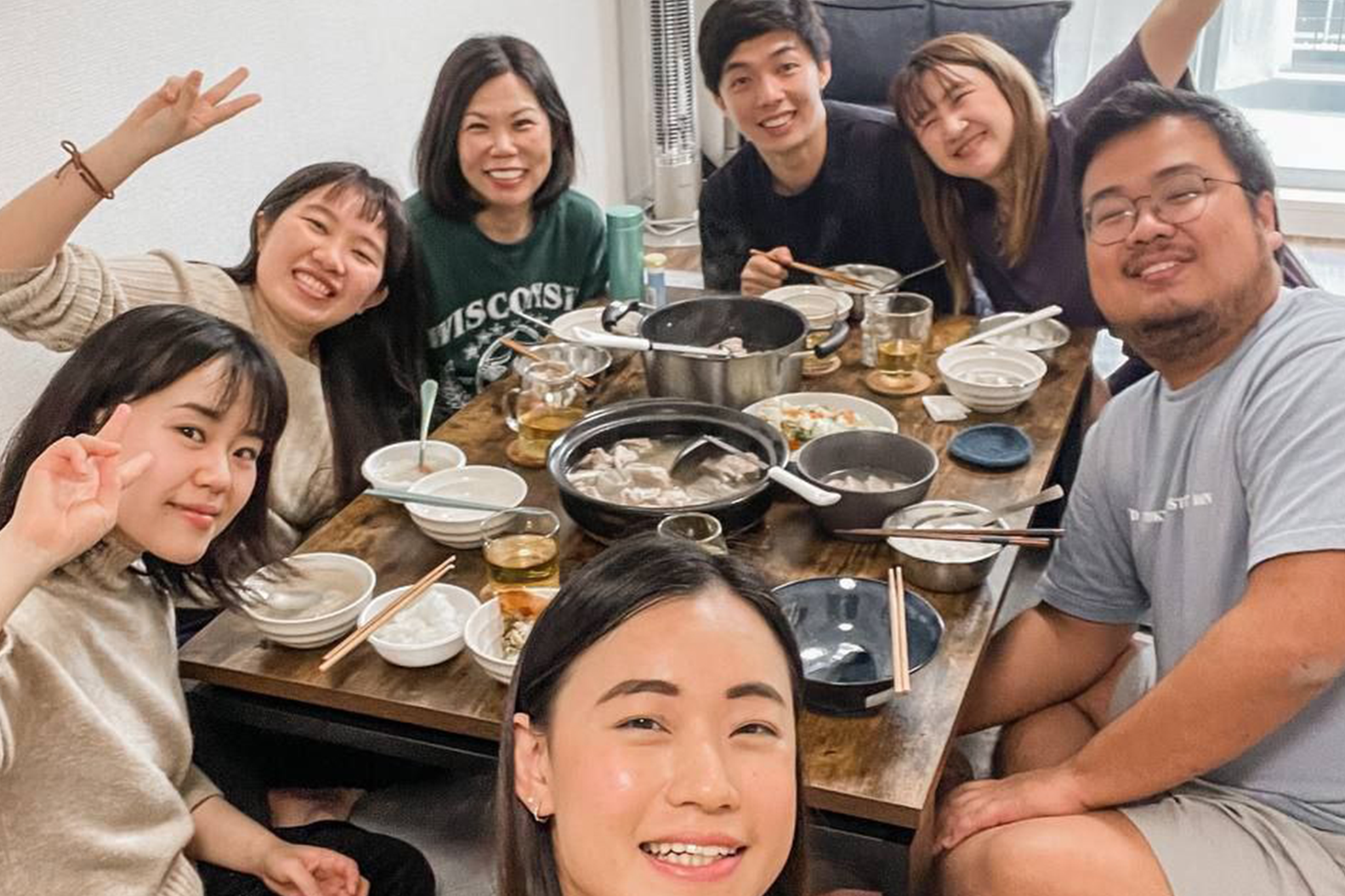
3. Alpha courses
Amanda and the team began efforts for Alpha courses on May 14, in light of the spiritual needs of a few of their foreign friends.
The team has since befriended a few friends who are at a stage in their journey of faith where they are open to hearing more about Christ.
“Because of this small group of friends who are ready to have deeper conversations about Christianity with us, we started Alpha.”
The response
Most of the people they approach are quite open to receive blessing packs, shared Amanda, who gives thanks for the ground made.
“At first, we were afraid of being rejected,” she said. “But having done this so often, we realised that the consistency in outreaching has helped us learn to be okay with rejection.”
The team’s focus isn’t on rejection, but on simply stewarding their availability to be on campus and to be open to whoever God wants them to bless and talk to.
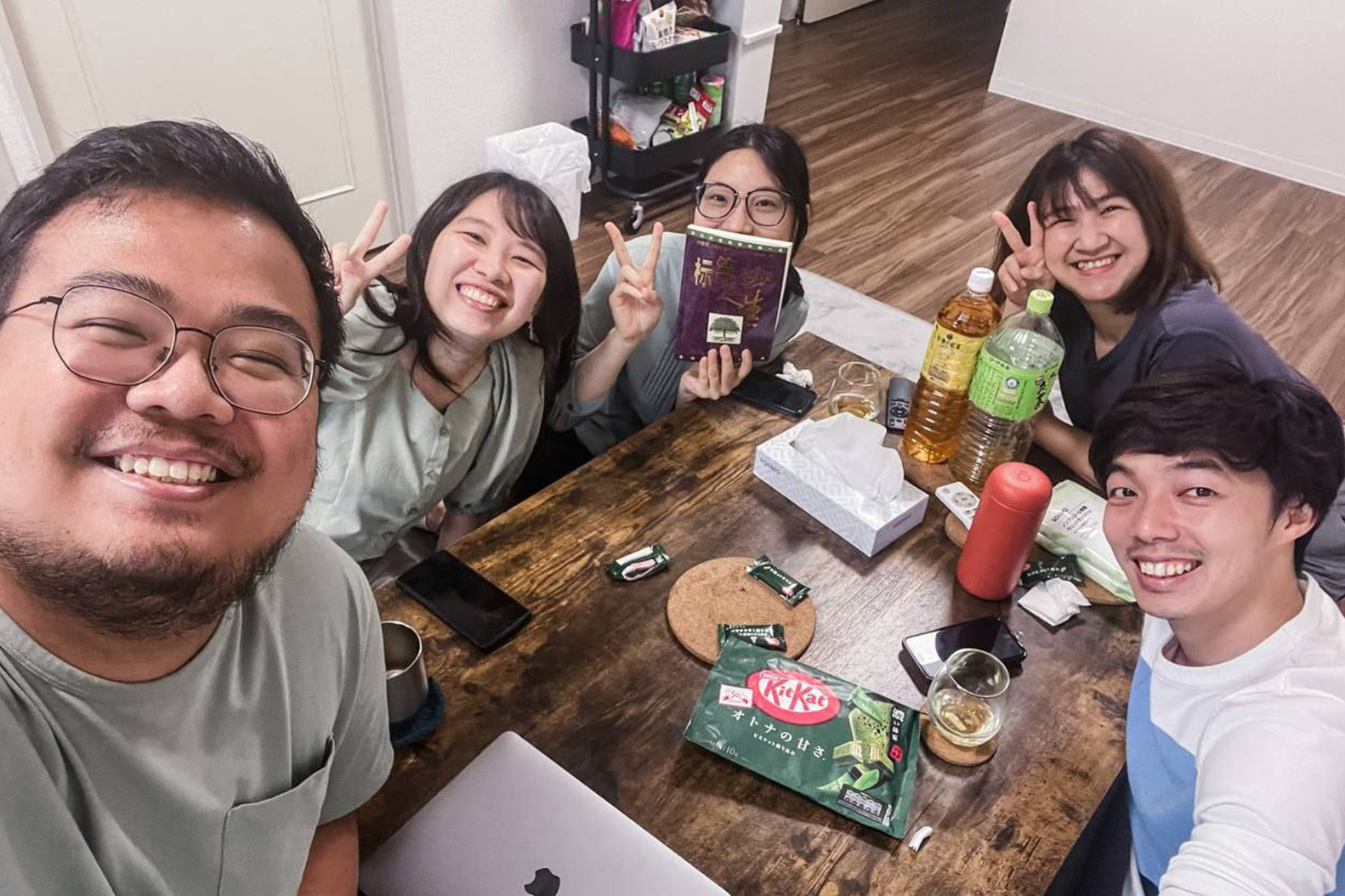
Additionally, as Amanda hunts for a job, she also makes it a point to reach out to others while on the go.
“When I do industry networking and attend different events, I make friends,” she said. “Then from there, I share about this Singaporean community that meets on weekends for board games and different fun programmes, then I’ll ask them to join us if they’re keen.
“And interestingly, God really opens up doors through that!”
- What is one thing about this article that stirred or challenged you?
- How has Amanda’s testimony influenced your perspective of missions in Japan?
- Pray for Amanda and the team, and the people of Japan.
- What is your role to play in the Great Commission?









